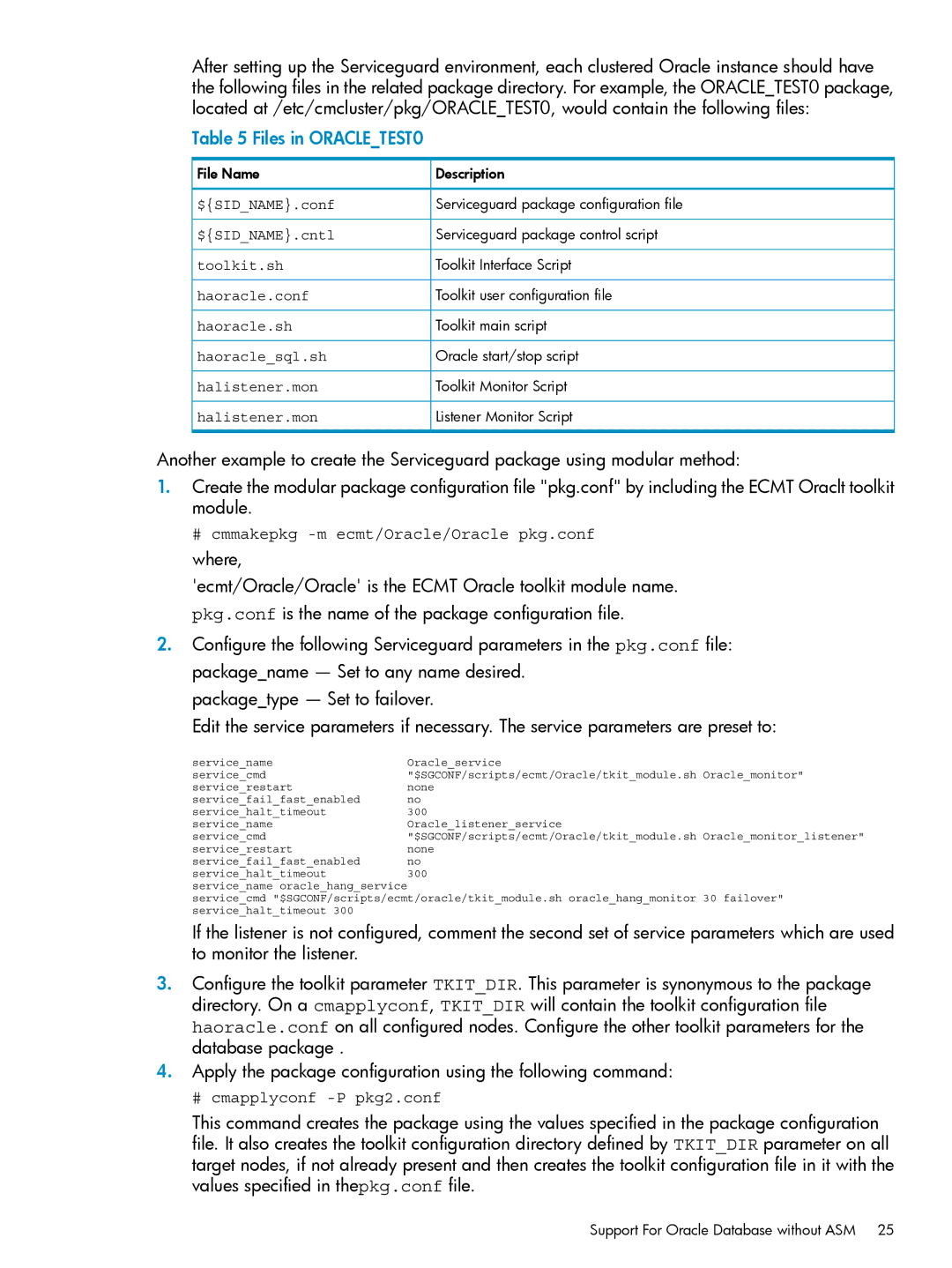
After setting up the Serviceguard environment, each clustered Oracle instance should have the following files in the related package directory. For example, the ORACLE_TEST0 package, located at /etc/cmcluster/pkg/ORACLE_TEST0, would contain the following files:
Table 5 Files in ORACLE_TEST0
File Name | Description |
${SID_NAME}.conf | Serviceguard package configuration file |
${SID_NAME}.cntl | Serviceguard package control script |
toolkit.sh | Toolkit Interface Script |
haoracle.conf | Toolkit user configuration file |
haoracle.sh | Toolkit main script |
haoracle_sql.sh | Oracle start/stop script |
halistener.mon | Toolkit Monitor Script |
halistener.mon | Listener Monitor Script |
Another example to create the Serviceguard package using modular method:
1.Create the modular package configuration file "pkg.conf" by including the ECMT Oraclt toolkit module.
# cmmakepkg
where,
'ecmt/Oracle/Oracle' is the ECMT Oracle toolkit module name.
pkg.conf is the name of the package configuration file.
2.Configure the following Serviceguard parameters in the pkg.conf file: package_name — Set to any name desired.
package_type — Set to failover.
Edit the service parameters if necessary. The service parameters are preset to:
service_name | Oracle_service |
service_cmd | "$SGCONF/scripts/ecmt/Oracle/tkit_module.sh Oracle_monitor" |
service_restart | none |
service_fail_fast_enabled | no |
service_halt_timeout | 300 |
service_name | Oracle_listener_service |
service_cmd | "$SGCONF/scripts/ecmt/Oracle/tkit_module.sh Oracle_monitor_listener" |
service_restart | none |
service_fail_fast_enabled | no |
service_halt_timeout | 300 |
service_name oracle_hang_service
service_cmd "$SGCONF/scripts/ecmt/oracle/tkit_module.sh oracle_hang_monitor 30 failover" service_halt_timeout 300
If the listener is not configured, comment the second set of service parameters which are used to monitor the listener.
3.Configure the toolkit parameter TKIT_DIR. This parameter is synonymous to the package directory. On a cmapplyconf, TKIT_DIR will contain the toolkit configuration file haoracle.conf on all configured nodes. Configure the other toolkit parameters for the database package .
4.Apply the package configuration using the following command:
# cmapplyconf
This command creates the package using the values specified in the package configuration file. It also creates the toolkit configuration directory defined by TKIT_DIR parameter on all target nodes, if not already present and then creates the toolkit configuration file in it with the values specified in thepkg.conf file.
